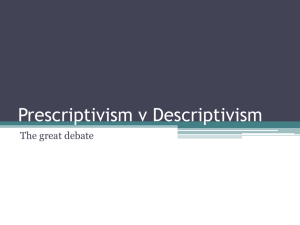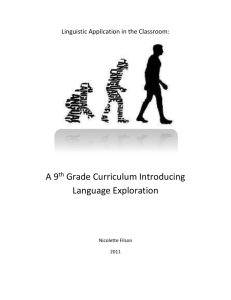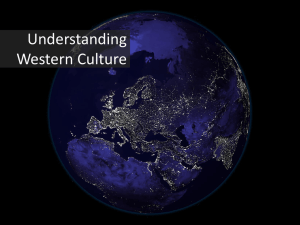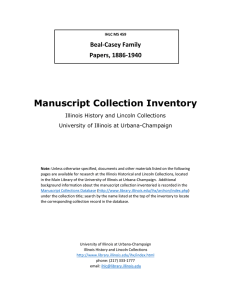Ilse Wischer (Potsdam), Claudia Claridge (Duisburg
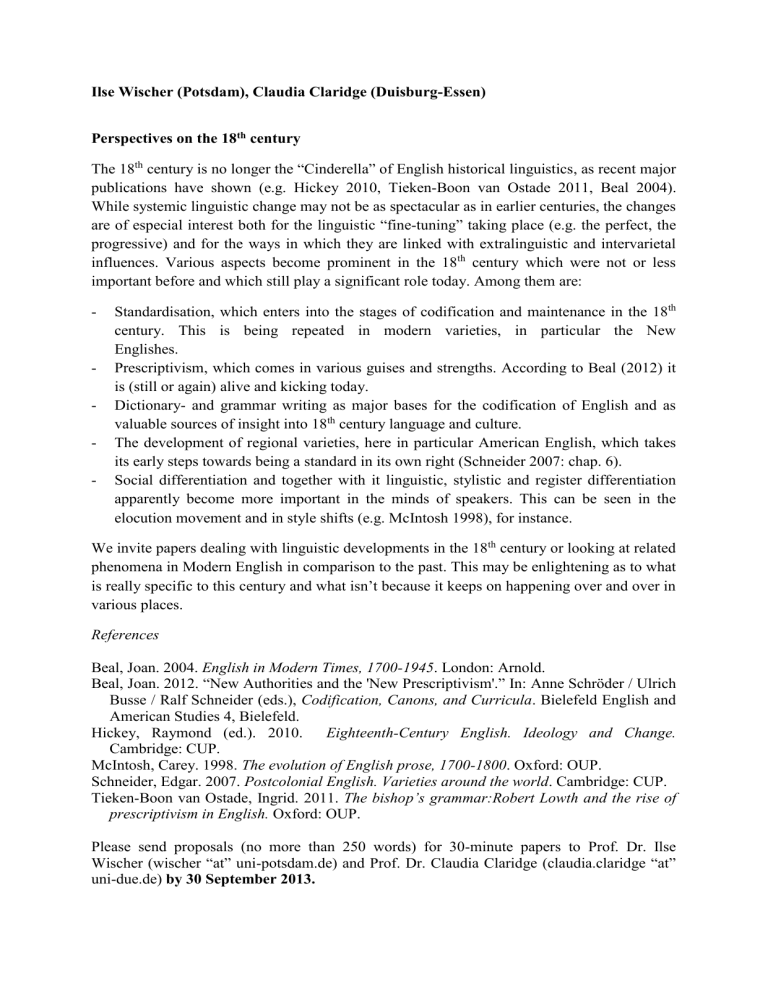
Ilse Wischer (Potsdam), Claudia Claridge (Duisburg-Essen)
Perspectives on the 18 th century
The 18 th
century is no longer the “Cinderella” of English historical linguistics, as recent major publications have shown (e.g. Hickey 2010, Tieken-Boon van Ostade 2011, Beal 2004).
While systemic linguistic change may not be as spectacular as in earlier centuries, the changes are of especial interest both for the linguistic “fine-tuning” taking place (e.g. the perfect, the progressive) and for the ways in which they are linked with extralinguistic and intervarietal influences. Various aspects become prominent in the 18 th
century which were not or less important before and which still play a significant role today. Among them are:
Standardisation, which enters into the stages of codification and maintenance in the 18 th century. This is being repeated in modern varieties, in particular the New
Englishes.
Prescriptivism, which comes in various guises and strengths. According to Beal (2012) it is (still or again) alive and kicking today.
Dictionary- and grammar writing as major bases for the codification of English and as valuable sources of insight into 18 th century language and culture.
The development of regional varieties, here in particular American English, which takes its early steps towards being a standard in its own right (Schneider 2007: chap. 6).
Social differentiation and together with it linguistic, stylistic and register differentiation apparently become more important in the minds of speakers. This can be seen in the elocution movement and in style shifts (e.g. McIntosh 1998), for instance.
We invite papers dealing with linguistic developments in the 18 th century or looking at related phenomena in Modern English in comparison to the past. This may be enlightening as to what is really specific to this century and what isn’t because it keeps on happening over and over in various places.
References
Beal, Joan. 2004. English in Modern Times, 1700-1945 . London: Arnold.
Beal, Joan. 2012. “New Authorities and the 'New Prescriptivism'.” In: Anne Schröder / Ulrich
Busse / Ralf Schneider (eds.), Codification, Canons, and Curricula . Bielefeld English and
American Studies 4, Bielefeld.
Hickey, Raymond (ed.). 2010. Eighteenth-Century English. Ideology and Change.
Cambridge: CUP.
McIntosh, Carey. 1998. The evolution of English prose, 1700-1800 . Oxford: OUP.
Schneider, Edgar. 2007. Postcolonial English. Varieties around the world . Cambridge: CUP.
Tieken-Boon van Ostade, Ingrid. 2011. The bishop’s grammar:Robert Lowth and the rise of prescriptivism in English. Oxford: OUP.
Please send proposals (no more than 250 words) for 30-minute papers to Prof. Dr. Ilse
Wischer (wischer “at” uni-potsdam.de) and Prof. Dr. Claudia Claridge (claudia.claridge “at” uni-due.de) by 30 September 2013.


